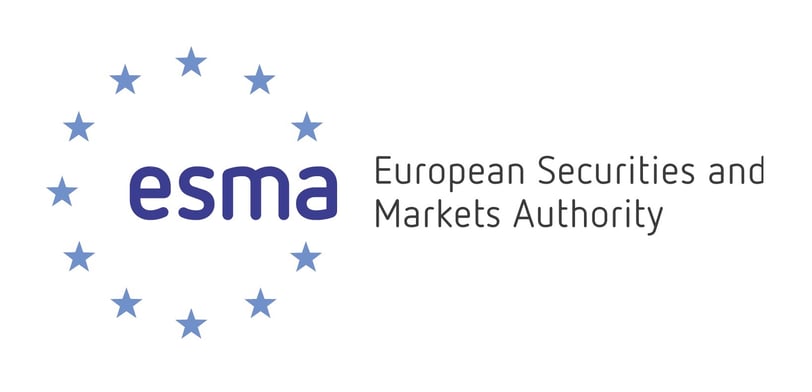EU Regulations
This post provides an in-depth overview of brokers regulation in the European Union, explaining the importance of protecting investors, ensuring market integrity, and promoting financial stability. It covers the key regulatory bodies, such as ESMA and national authorities, and major legislation like MiFID II, GDPR, and AMLD. The guide explores the impact of these regulations on brokers and investors, highlighting challenges such as the rise of digital platforms and cybersecurity threats. Understanding the EU's regulatory framework helps investors navigate financial markets confidently and ensures brokers operate transparently and responsibly.
TRADING
12/11/20246 min read


In This Post:
Introduction
The Importance of Brokers Regulation in the EU
Key Regulatory Bodies Overseeing Brokers in the EU
European Securities and Markets Authority (ESMA)
National Competent Authorities (NCAs)
Core Legislation Governing Brokers in the EU
Markets in Financial Instruments Directive (MiFID II) and Regulation (MiFIR)
General Data Protection Regulation (GDPR)
Anti-Money Laundering Directive (AMLD)
Capital Requirements Regulation (CRR) and Directive (CRD IV)
Impact of Regulation on Brokers and Investors
Challenges and Future Trends in Broker Regulation
Conclusion
Key Takeaways
Purpose of Regulation: Brokers regulation in the EU is designed to protect investors, ensure market integrity, and promote financial stability through transparent and fair practices.
Regulatory Authorities: Oversight is provided by pan-European bodies like the European Securities and Markets Authority (ESMA) and national regulators known as National Competent Authorities (NCAs), ensuring consistent enforcement across member states.
Core Legislation: Key regulations such as MiFID II, GDPR, and AMLD govern brokers’ operations, mandating best execution, data protection, anti-money laundering measures, and suitability assessments to protect clients.
Investor Protection: Regulations ensure brokers provide clear information, manage conflicts of interest, and act in the best interests of clients, reducing the risk of fraud, mis-selling, and unethical practices.
Market Transparency: Brokers are required to disclose fees, trading practices, and potential conflicts, enhancing transparency and allowing investors to make informed decisions.
Financial Stability: By imposing capital and liquidity requirements, regulations help brokers withstand financial shocks, safeguarding clients’ assets and the broader financial system.
Challenges and Trends: Digital trading platforms, cryptocurrency brokers, cybersecurity threats, and the push for sustainable finance are driving the evolution of broker regulation in the EU.
Brokers Regulation in the EU: Ensuring Transparency, Stability, and Investor Protection
The financial markets in the European Union (EU) are among the most sophisticated and well-regulated in the world. At the heart of these markets are brokers — intermediaries who facilitate the buying and selling of financial instruments such as stocks, bonds, derivatives, and commodities. Given their crucial role in maintaining market integrity, the regulation of brokers in the EU is a multi-faceted system designed to ensure transparency, protect investors, and uphold financial stability. Through a combination of centralized oversight, national enforcement, and comprehensive legislation, the EU seeks to create a safe, fair, and efficient marketplace for investors of all types. This guide provides an in-depth exploration of the key regulations governing brokers in the EU, the regulatory bodies involved, the core legislation, and the impacts and challenges facing brokers and investors today.
The Importance of Brokers Regulation in the EU
Brokers are the bridge between investors and the financial markets. They provide the tools, platforms, and expertise necessary for individuals, institutions, and corporations to execute trades and manage their investments. Given their influential position, effective regulation of brokers serves several critical purposes:
Investor Protection: Ensures that brokers act in the best interests of their clients, provide clear and honest information, and maintain high standards of service. Regulations help prevent unethical practices such as fraud, market manipulation, and mis-selling.
Market Integrity: Brokers are required to follow strict rules to ensure fair trading practices. By preventing market abuse, such as insider trading and price manipulation, regulations uphold confidence in the financial markets.
Transparency: Regulations mandate that brokers disclose key information about their services, fees, execution practices, and potential conflicts of interest. This transparency helps investors make informed decisions.
Financial Stability: By imposing capital requirements, risk management standards, and reporting obligations, regulations ensure that brokers remain financially sound and resilient, reducing the risk of systemic failures.
Cross-Border Harmonization: The EU’s regulatory framework promotes uniform standards across all member states, facilitating seamless cross-border investment and competition while protecting investors throughout the bloc.
Key Regulatory Bodies Overseeing Brokers in the EU
Brokers in the EU are subject to oversight by a combination of pan-European regulatory authorities and national competent authorities (NCAs). This multi-layered system ensures consistency while allowing for localized enforcement and supervision.
European Securities and Markets Authority (ESMA)
Established in 2011, the European Securities and Markets Authority (ESMA) is the principal regulatory body responsible for overseeing financial markets across the EU. ESMA’s core mission is to enhance investor protection and promote stable, efficient markets by:
Developing technical standards and guidelines for brokers and other financial intermediaries.
Directly supervising certain entities, such as credit rating agencies and trade repositories.
Coordinating with NCAs to ensure uniform implementation and enforcement of regulations.
Monitoring systemic risks and market developments to safeguard financial stability.
Imposing sanctions and corrective measures when necessary.
ESMA's role in shaping policy, conducting risk assessments, and facilitating cooperation between member states is crucial to maintaining an integrated and resilient financial market in the EU.
National Competent Authorities (NCAs)
Each EU member state has its own National Competent Authority (NCA) responsible for regulating brokers operating within its jurisdiction. NCAs are tasked with licensing brokers, ensuring compliance with EU regulations, and investigating potential misconduct. Some notable NCAs include:
Autorité des Marchés Financiers (AMF) in France
Bundesanstalt für Finanzdienstleistungsaufsicht (BaFin) in Germany
Comisión Nacional del Mercado de Valores (CNMV) in Spain
Consob (Commissione Nazionale per le Società e la Borsa) in Italy
Financial Conduct Authority (FCA) in the UK (prior to Brexit)
While NCAs operate independently, they collaborate closely with ESMA to ensure a harmonized regulatory environment. This cooperation helps prevent regulatory arbitrage, where brokers might seek to exploit differences in national rules.
Core Legislation Governing Brokers in the EU
The regulatory framework for brokers in the EU is built on a series of directives and regulations that cover every aspect of brokerage services. These laws ensure that brokers operate transparently, ethically, and with financial prudence.
Markets in Financial Instruments Directive (MiFID II) and Regulation (MiFIR)
MiFID II (Directive 2014/65/EU) and MiFIR (Regulation (EU) No 600/2014) are the cornerstone of EU financial market regulation. Implemented in January 2018, these frameworks aim to enhance investor protection, improve market transparency, and foster fair competition among brokers.
Key provisions under MiFID II and MiFIR include:
Best Execution: Brokers must execute client orders under the most favorable terms, considering factors like price, costs, speed, and likelihood of execution.
Transparency: Brokers must provide detailed information on trade execution, fees, and potential conflicts of interest.
Suitability and Appropriateness: Brokers must assess whether investment products are appropriate for their clients based on their knowledge, experience, and financial situation.
Product Governance: Financial products must be designed with specific target markets in mind, ensuring they are suitable for the intended audience.
Transaction Reporting: Brokers must report all trades to regulators to ensure market oversight and detect potential abuses.
General Data Protection Regulation (GDPR)
The General Data Protection Regulation (GDPR) (Regulation (EU) 2016/679) protects clients’ personal data. Brokers must handle customer information responsibly, obtain consent for data processing, and ensure data security. Violations of GDPR can result in significant fines and reputational damage.
Anti-Money Laundering Directive (AMLD)
The Anti-Money Laundering Directive (AMLD) requires brokers to implement robust anti-money laundering (AML) policies. Brokers must conduct Know Your Customer (KYC) checks, monitor transactions for suspicious activities, and report any potential money laundering to authorities.
Capital Requirements Regulation (CRR) and Directive (CRD IV)
These regulations ensure brokers maintain adequate capital reserves to withstand financial shocks. Brokers must demonstrate financial stability, implement risk management practices, and meet liquidity requirements to protect clients and the broader financial system.
Impact of Regulation on Brokers and Investors
The comprehensive regulation of brokers in the EU has a profound impact on both the industry and investors.
For brokers, compliance with these regulations requires significant investment in technology, personnel, and infrastructure. They must implement robust systems for risk management, transaction reporting, data protection, and customer due diligence. Non-compliance can result in severe penalties, including fines, suspension of operations, and reputational damage.
For investors, EU regulations provide a safer and more transparent trading environment. Clients benefit from enhanced protections, clear information, and fair treatment. Measures like best execution, suitability assessments, and data protection ensure that brokers act in their clients’ best interests and safeguard their assets.
Challenges and Future Trends in Broker Regulation
Despite the robust regulatory framework, brokers in the EU face several challenges. The rapid rise of digital trading platforms, cryptocurrencies, and high-frequency trading (HFT) presents new regulatory complexities. The EU must continually update its regulations to address these evolving market dynamics.
The increasing emphasis on sustainable finance is another trend shaping regulation. The EU’s Sustainable Finance Disclosure Regulation (SFDR) requires brokers to disclose how they integrate environmental, social, and governance (ESG) factors into their investment processes.
Additionally, cybersecurity threats and the need for cross-border harmonization will drive future changes, ensuring that brokers operate securely and efficiently across a unified European financial market.
Conclusion
Brokers' regulation in the EU is a comprehensive system designed to protect investors, maintain market integrity, and ensure financial stability. Through robust frameworks like MiFID II, GDPR, and AMLD, brokers are held to high standards of transparency, fairness, and responsibility. While compliance poses challenges, these regulations provide confidence and security for investors. As technology, financial products, and market dynamics evolve, the EU's regulatory approach will continue to adapt, ensuring that brokers remain reliable stewards of financial markets and investor trust.
